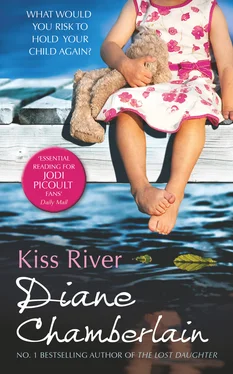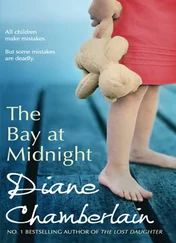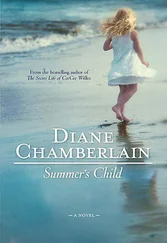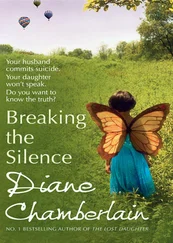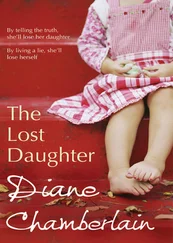They pulled into Shorty’s crowded parking lot. Shorty’s was a dive—there was no other word for it—and somehow the tourists knew to stay away. A few ventured in, those people who thought they’d find a taste of the old Outer Banks in the ramshackle building, but most of them were there only a few minutes before realizing they would never truly fit in. Especially not in the back room.
The back room, which was in reality on the side of the building, was a hangout for fishermen, weathered old-timers and young men with too much time on their hands. There was a battered pool table on one side of the room and chess and checker boards and decks of cards scattered across the tables. Two dartboards hung on the walls. The windows were filmed with years of smoke. An occasional woman or two could be found in the back room. They usually hung around the younger men, playing pool, displaying varying degrees of cleavage as they leaned low over the table and maybe a tattoo of a rose on one shoulder. It was those women, their skin tanned to the color and texture of leather, who were often the smokers.
Kenny Gallo, whom Clay was to meet for a beer, was not yet in the restaurant, so he walked with Henry into the back room to deliver the old man to his friends. A couple of women were playing pool with a guy who had only recently become a regular, a dark-haired young man of about twenty who was elaborately tattooed all the way from his knuckles to the place where his arms disappeared beneath the sleeves of his black Grateful Dead T-shirt. The women looked up when Clay entered the room. He felt their eyes stay on him as he and Henry moved toward Walter Liscott and Brian Cass and the chessboard. He was as indifferent to their attention as he was accustomed to it.
“You’re late.” Brian looked up at Henry, his rheumy blue eyes annoyed. Brian could be as prickly as a sandspur. His thick white hair stuck up on one side of his head as though he’d slept on it, and he tapped the chessboard with a long, bony finger.
“Oh, shut up,” Walter said to his friend. “He’s here now, so what does it matter?”
“My fault,” Clay said, even though Henry had not been expected at any particular time. He pulled one of the chairs from a neighboring table and set it adjacent to the chessboard so Henry could sit down. “I was late picking him up,” he said.
“Sit down yourself, Clay,” Walter said, as he always did. The wheelchair he sat in was pulled up tight against the table. Walter had used the chair for the past four years. Something about his legs and diabetes. When it was apparent the chess-loving old man could no longer get around without the chair, Clay and Kenny had built a ramp up to Shorty’s back door so he could get in. Walter’s meticulously carved and painted decoys provided much of Shorty’s decor, so it seemed only fitting that the restaurant should remain accessible to him, of all people. The decoy on which he was currently working now rested on the table, next to the chessboard.
Clay glanced back toward the main room. Still no sign of Kenny. “Just for a minute,” he said, dragging another chair to the table.
“Do ya see that asshole?” Brian nodded toward the guy with the tattoos, speaking far too loudly.
Clay didn’t shift his gaze from Brian’s face. “What about him?” he asked, trying to whisper.
“He’s got a new one Brian can’t get his mind off.” Walter laughed.
“It’s on his back,” Brian said. “He held up his shirt when them girls came in.”
“Don’t talk so loud,” Henry said.
Brian leaned toward Henry. “I’m talking loud so you can hear me, old man,” he said.
“I hear you fine,” Henry shot back. “And so can everyone in the next room.”
“It’s a mermaid,” Walter said.
“What is?” Henry asked. He was studying the board. He would be playing the winner.
“The new tattoo,” Brian said. “A mermaid with the biggest jugs you ever seen.”
Clay had to laugh.
“Ah, you and your jugs,” Walter scoffed.
The conversation continued that way, three old widowers baiting and badgering each other as they had for years. It was clear they loved each other deeply, yet they never spoke of anything weightier than the shifting of the tides. Three old men who had fought and fished and lost loved ones together. Brian’s wife of half a century had died only a couple of years ago, and his eleven children and twenty-seven grandchildren were scattered around the country. Walter had been widowed for a decade. His two children badgered him regularly to move to Colorado where they lived, but he could not bring himself to leave the Outer Banks. Women were supposed to outlive men, Clay thought, but the old regulars in Shorty’s back room hadn’t gotten the word. Must be something in the salt air that kept men alive out here. It was only when Clay left their table to walk back into the main room that the realization hit him: there had actually been four widowers sitting around that chessboard.
He found Kenny waiting for him at one of the small tables, and he sat down across from his old friend. The waitress brought them beers without even waiting for them to order. They were well known here.
“How was work?” he asked Kenny, taking a swallow of beer.
“Good, but man, I’m losing more hearing in this ear every day,” Kenny said, rubbing his left ear with his hand.
“Well, you know the cure for that,” Clay said. Kenny did much of the diving for the marine repair business he owned, and hearing loss was part of the job. He’d be deaf in another ten years, but Clay knew that wouldn’t stop him. Kenny was happier underwater than he was on land.
“I’d rather go deaf and have my cock fall off than give up diving,” Kenny said.
Clay laughed. “You have a way with words, Ken.”
He spent more time with Kenny these days than any of his other buddies. Most of his friends were married, and he felt their pity when they were with him. He saw them glance at each other when one of them committed a faux pas by talking about getting in trouble with his wife if he got home late or whatever. They treated Clay as if he was fragile. The worst part of it was, they were right. He did wince, if only inside, when they talked about their wives. He was jealous, resentful, angry and hurt, all those things they thought him to be, but he let none of it show. Being with Kenny was much easier. Kenny was not ready to give up bachelorhood. He could talk to Clay about diving or windsurfing the way they always had, with no mention of a wife at home who might try to put a damper on their fun. Still, Kenny liked women, and they liked him. He was a notorious flirt, burly, bearded and blond. It could be disconcerting talking to him, since he so rarely looked Clay in the eye. He was too busy following the movement of every woman within sight.
Now that he was done with the cistern repair and had delivered Henry to his friends, now that he was just sitting and relaxing, one particular woman crept back into Clay’s mind. For a moment, he thought of telling Kenny about Gina. About how beautiful she was, how he was both drawn to and repelled by her at the same time. But he couldn’t do that. It would break one of the unspoken rules of his current relationship with Kenny: talk about sports or diving or fishing—anything but women.
They had been friends in high school, but had taken different paths when it came to careers. Kenny, reluctant to leave the Outer Banks, took over his father’s marine repair business after graduation from high school, while Clay went to Duke to study architecture. It would have been logical for their educational differences to separate them, but they remained friends. Kenny was not educated, not in books or in life—he still called women “girls,” for example, and he would probably get off on the jugs on tattooed guy’s back—but he had brains that Clay respected, and he was a better, smarter diver than Clay would ever be.
Читать дальше
